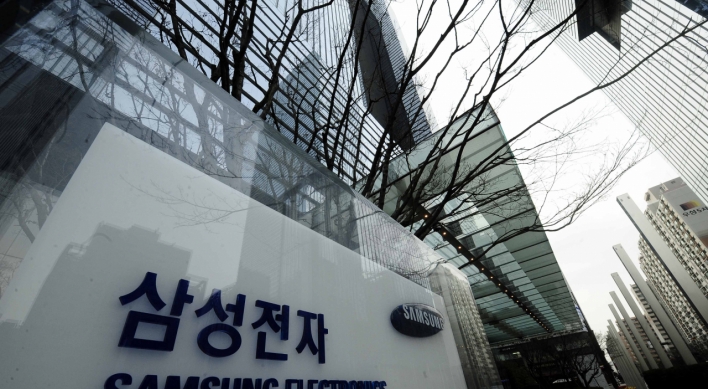[Editorial] Utility charge hikes
State-run firms should cut expenses first
By Yu Kun-haPublished : Oct. 29, 2013 - 19:26
Public utility charges are expected to rise sharply as state-run corporations seek to increase their income to rein in their mounting debt.
The government recently told the 41 public entities with assets exceeding 2 trillion won to submit medium- to long-term plans to curb their fast growing debt. One solution suggested by many of the organizations was to transfer a large chunk of the debt to the public through gradual hikes in utility charges.
For instance, Korea Express Corp., which is 25 trillion won in debt, said it would scale back its toll reduction or exemption programs. It plans to reduce discounts offered to compact cars and commuters and eliminate toll-free sections on the Seoul Outer Ring Expressway.
Korea Water Resources Corp., whose debt has surged to 14 trillion won due to the four river restoration projects, said tap water rates should go up each year at least at the rate of inflation during the term of the present government.
Korea Power Electric Corp. also presented a plan to raise electricity prices each year so that they could come closer to power generation costs. KEPCO’s liabilities approximate 60 trillion won.
Korea Gas Corp. seeks to link gas rates to supply costs to cut its 35 trillion won debt, while Korea Railroad Corp. plans to wind down services on unprofitable lines to bring down its 18 trillion won debt to a more manageable level.
Raising these utility rates is inevitable to some degree, given that their current levels are all below the cost of production. Yet rate hikes should come only after state-run corporations cut their expenses to the bone.
Despite their mounting debt, many public organizations splashed out on bonuses and employee benefits. Korea Water Resources Corp. raised performance bonuses of their staff by 225 percent during the past four years.
Korea Expressway Corp. was found to have fully funded graduate school fees for their employees. It provided as much as 70 million won a year in subsidy for some workers.
Korea Electric Power Corp. was found to have spent more than 1 trillion won in welfare subsidies for employees during the past three years, a generosity befitting its “God-created workplace” moniker.
Such lax management has triggered backlash from civic groups. The Korea National Council of Consumer Organizations is stepping up scrutiny of the operations of state-run corporations.
It has found that Korea Expressway Corp. has already fully recouped the construction costs of some old expressways. The relevant law requires the corporation to lower the tolls for such expressways.
The government recently told the 41 public entities with assets exceeding 2 trillion won to submit medium- to long-term plans to curb their fast growing debt. One solution suggested by many of the organizations was to transfer a large chunk of the debt to the public through gradual hikes in utility charges.
For instance, Korea Express Corp., which is 25 trillion won in debt, said it would scale back its toll reduction or exemption programs. It plans to reduce discounts offered to compact cars and commuters and eliminate toll-free sections on the Seoul Outer Ring Expressway.
Korea Water Resources Corp., whose debt has surged to 14 trillion won due to the four river restoration projects, said tap water rates should go up each year at least at the rate of inflation during the term of the present government.
Korea Power Electric Corp. also presented a plan to raise electricity prices each year so that they could come closer to power generation costs. KEPCO’s liabilities approximate 60 trillion won.
Korea Gas Corp. seeks to link gas rates to supply costs to cut its 35 trillion won debt, while Korea Railroad Corp. plans to wind down services on unprofitable lines to bring down its 18 trillion won debt to a more manageable level.
Raising these utility rates is inevitable to some degree, given that their current levels are all below the cost of production. Yet rate hikes should come only after state-run corporations cut their expenses to the bone.
Despite their mounting debt, many public organizations splashed out on bonuses and employee benefits. Korea Water Resources Corp. raised performance bonuses of their staff by 225 percent during the past four years.
Korea Expressway Corp. was found to have fully funded graduate school fees for their employees. It provided as much as 70 million won a year in subsidy for some workers.
Korea Electric Power Corp. was found to have spent more than 1 trillion won in welfare subsidies for employees during the past three years, a generosity befitting its “God-created workplace” moniker.
Such lax management has triggered backlash from civic groups. The Korea National Council of Consumer Organizations is stepping up scrutiny of the operations of state-run corporations.
It has found that Korea Expressway Corp. has already fully recouped the construction costs of some old expressways. The relevant law requires the corporation to lower the tolls for such expressways.






![[KH Explains] No more 'Michael' at Kakao Games](http://res.heraldm.com/phpwas/restmb_idxmake.php?idx=644&simg=/content/image/2024/04/28/20240428050183_0.jpg&u=20240428180321)



![[Grace Kao] Hybe vs. Ador: Inspiration, imitation and plagiarism](http://res.heraldm.com/phpwas/restmb_idxmake.php?idx=644&simg=/content/image/2024/04/28/20240428050220_0.jpg&u=)








![[Herald Interview] Xdinary Heroes shoot for the next level with 'Troubleshooting'](http://res.heraldm.com/phpwas/restmb_idxmake.php?idx=642&simg=/content/image/2024/04/29/20240429050745_0.jpg&u=)